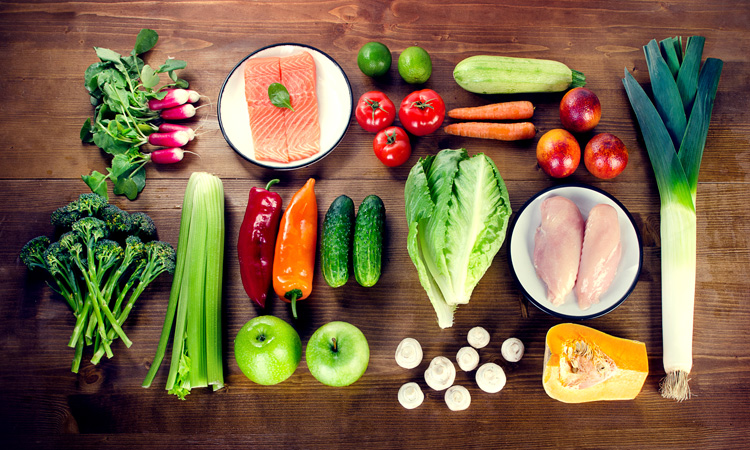Research reveals consumer confusion about how to structure diet
- Like
- Digg
- Del
- Tumblr
- VKontakte
- Buffer
- Love This
- Odnoklassniki
- Meneame
- Blogger
- Amazon
- Yahoo Mail
- Gmail
- AOL
- Newsvine
- HackerNews
- Evernote
- MySpace
- Mail.ru
- Viadeo
- Line
- Comments
- Yummly
- SMS
- Viber
- Telegram
- Subscribe
- Skype
- Facebook Messenger
- Kakao
- LiveJournal
- Yammer
- Edgar
- Fintel
- Mix
- Instapaper
- Copy Link
Posted: 12 March 2020 | Sam Mehmet (New Food) | No comments yet
Working with behavioural change experts, retail, manufacturing, catering providers, government and academia, the research is said to provide a snapshot of consumer attitudes towards the health and sustainability of their diet.


Research from IGD, a charity looking to upskill people in the food and beverage industry, has revealed a big appetite from consumers to be healthier and more sustainable in their food choices and that consumers are looking for support to make positive changes.
Two-thirds (66 percent) of the 1,000 surveyed consumers are reportedly already changing their diets or are considering making changes to be healthier and more sustainable. However, consumers are also confused, according to the research, with most overestimating how healthy and sustainable their diet is.
“Working with our colleagues in the industry we hope the Appetite for Change report will provide tangible inspiration to encourage steps towards behavioural change in consumers’ diets,” said Susan Barratt, CEO of IGD.
The research found that while many understand the principles of a balanced diet, the reality of what they eat does not reflect this, resulting in a gap between knowledge and action. Consumer food diaries, completed as part of IGD’s research, showed that the balance of food groups people consume were not aligned with public health recommendations set out in the national dietary guidelines, The Eatwell Guide.
“While the Eatwell Guide provides a useful direction of travel for consumers, we are a long way from meeting this guidance. This new research focuses on consumer behaviour, as we believe the real opportunity comes from changing diets; if we work with our industry to empower and enable consumers, they will help drive the change required,” Barratt commented.
“Extensive studies have shown that education alone will not change behaviour, which is why we have collaborated with behaviour change experts and a wide range of stakeholders to understand how, together, we can advocate and support consumers on this journey.
“The research reveals that consumers fall into three mindsets; those who are making changes to be healthy and more sustainable, those who are considering it, and those who see no reason to change. And because the majority (66 percent) of people in the UK are open to making changes to what they eat and drink, the scale of change can be phenomenal. It is this group of people that, with the help of industry, are actively looking for products and solutions that meet their needs.
“We also identified actions that companies can take for those who have not yet thought about changing their diet, bringing them on the journey by helping to normalise healthier and sustainable choices.”
Those consumers who rated the health and sustainability of their diets as eight or more out of 10 said that some of the actions they are taking include increasing their intake of plant-based foods (42 percent), reducing their intake of meat (39 percent) and reducing their intake of dairy (23 percent). Consumers who rated their diet between five and seven out of 10 said that they are increasing the amount they cook from scratch (58 percent) and increasing their fruit and vegetable consumption (58 percent).
While health was the primary driver for 58 percent of consumers to make improvements to their diet, concern for the environment is growing, especially among younger consumers, with almost a quarter (22 percent) of 18-24-year-olds stating they are motivated by concerns about the environment to pursue a sustainable and healthy diet.
Some 41 percent of consumers perceived healthy and sustainable eating to be more expensive, making this the biggest barrier to change. Other barriers included liking the taste of their current diet (19 percent), being creatures of habit (18 percent) and the convenience of their current meal choices and the ease of cooking them (18 percent).
Related topics
Health & Nutrition, Research & development, Sustainability, The consumer









